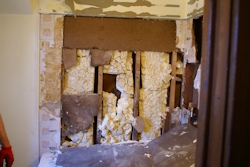 What About UFFI?
What About UFFI?
In the Ontario standard Agreement of Purchase and Sale, there is a clause regarding urea formaldehyde insulation. The clause forces Sellers to warrant that they have never installed UFFI and to the best of their knowledge it is not in the property. In Ottawa, the Real Estate Board requires another paper that they Seller must sign warranting the same thing. Why? I believe that it’s time for a change to the OREA and CREA stance on the issue of urea formaldehyde insulation and the inclusion of the UFFI warranty clause within the agreement of Purchase and Sale in Ontario.
There are two issues at play here, the expert proof that UFFI is not a problem, and the lack of consistency.
Expert and Courts Agree
Experts and courts have agreed that UFFI no longer poses a health threat. This stigma is being perpetuated by the Real Estate industry causing an unnecessary financial loss to property sellers. A study done by Ben Lansink that appeared in The Canadian Appraiser in 1985 estimated that properties insulated with UFFI were selling for 35-50% below market value. While there are no current studies available on the effect of UFFI on property values, there are many studies supporting the safety of UFFI. There is no justification for UFFI being singled out within the Agreement of Purchase and Sale. The CMHC clearly states within an article on there website, “ Even though UFFI should not be a cause for concern you may, depending on where you live in Canada, be asked to declare whether or not it is in your home.” The OREA website further states, “A general consensus now minimizes UFFI as a health concern. However, The Canadian Real Estate Association has strongly urged its members to stay informed, not to treat UFFI as a finalized issue and maintain UFFI references in listing and sales documents and, more particularly, the agreement of purchase and sale.” On what basis does CREA base the opinion that the safety of UFFI is not finalized? There are no studies linking UFFI to health issues. None. This urging by CREA is perpetuating a myth-based, out-dated stigmatization to the detriment of home owners. Several provinces have removed this warranty clause from their agreements and listing paperwork.
UFFI is no longer considered a health hazard and in all likelihood, never was. Byforcing a home owner to warrant whether they have knowledge of the existence of UFFI within the property, the standard Agreement of Purchase and Sale is forcing an unnecessary stigma on the Seller, thereby affecting the possible selling price of their property. This financial loss, based on an unnecessary disclosure, rests solely at the feet of OREA. It is only a matter of time before a consumer makes the connection and possibly could proceed with litigation in a class-action suit against OREA.
Why Only UFFI?
The second issue with the UFFI clause is the precedent that it sets. When a Seller has to warrant whether UFFI exists or not, why are they not forced to warrant other health and safety issues. The OREA website outlines numerous issues on the website, including: Mould, Asbestos, Electro-Magnetic Fields, Lead and Radon. An argument should be made that the Seller should have to warrant that the property was not used as a grow operation or a meth lab, never had asbestos or lead. These hazards are by far more prevalent and actually have scientific proof and factual data to support the hazards involved. By only including a clause regarding UFFI, it can easily be argued that OREA and its Brokers are being negligent in not providing clauses for these issues within the pre-printed portion of the Agreement of Purchase and Sale. Litigation by a Buyer could easily ensue.
In 1995, a test case against UFFI manufacturers reached the Quebec Court of Appeal after a marathon eight-year trial. In a massive 216,000-word judgment, the court ruled that there is no basis for fear of health risks and no justification for removing UFFI. There is already a court ruling setting a precedent in Canada for the safety of UFFI. Why am I, as a Broker, being put in a position that I am either causing an unnecessary financial loss for the Seller Client or I am negligent in not having my Seller disclose all health and safety hazards?
This issue needs to be addressed and the clause removed from the Agreement of Purchase and Sale. It is out-dated and not based on any factual information.
Interested in reading more?
http://www.thestar.com/news/2007/07/21/uffi_clause_has_outlived_its_purpose.htmlhttp://www.carsondunlop.com/2011/12/urea-formaldehyde-foam-insulation/
http://www.elliottlawyers.com/real-estate-law/uffi-the-stigma-lives-on-2